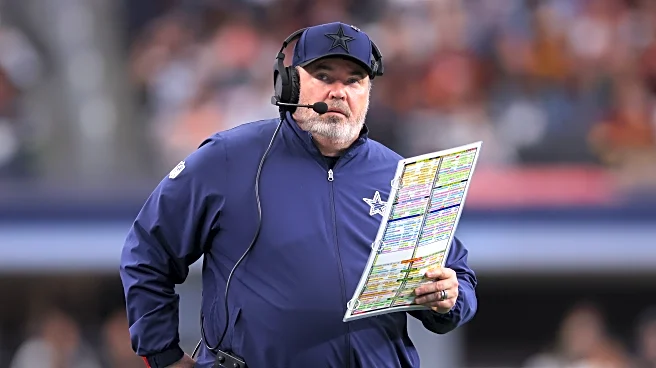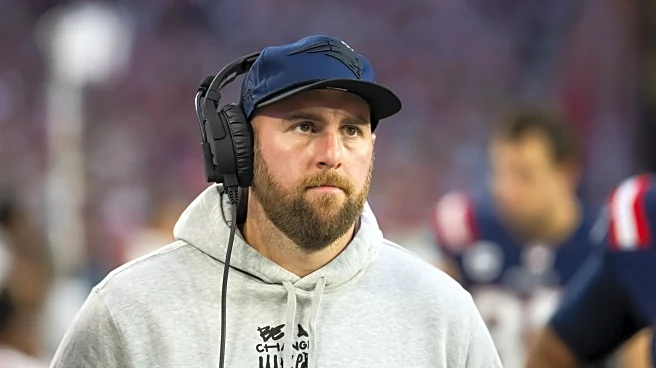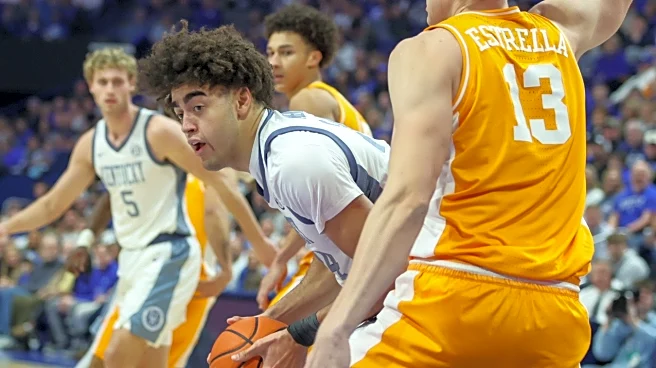What's Happening?
Electronic Arts (EA) has announced a significant move to go private through a $55 billion leveraged buyout. The deal involves Saudi Arabia's Public Investment Fund, Affinity Partners, and Silver Lake taking full ownership of the company. This transaction, which is expected to close in the first quarter of fiscal year 2027, is subject to regulatory approvals and shareholder consent. The buyout will see EA's stock removed from public markets, marking a major shift for the company known for popular franchises like Battlefield and Madden. The deal is financed with $20 billion in debt, making it the largest private equity leveraged buyout in history.
Why It's Important?
This buyout is significant as it highlights the growing value of gaming intellectual property and the financial risks associated with high production costs and debt servicing. The involvement of Saudi Arabia's Public Investment Fund raises questions about potential cultural and operational changes within EA, given the kingdom's controversial human rights record. The deal also reflects a broader trend of consolidation in the gaming industry, following similar acquisitions by major players like Microsoft and Sony. Stakeholders, including employees and gamers, are concerned about potential layoffs and changes in company culture and game content.
What's Next?
The deal's completion is contingent on regulatory scrutiny and shareholder approval. If successful, EA will transition to private ownership, potentially altering its strategic focus and operational practices. The new ownership may prioritize enhancing EA's mobile gaming sector, leveraging previous acquisitions in the mobile space. However, there are concerns about possible cost-cutting measures, including layoffs, to manage the substantial debt. The involvement of Saudi Arabia's PIF could also influence EA's global strategy and content offerings, given the kingdom's interest in diversifying its economic portfolio beyond oil.
Beyond the Headlines
The buyout could lead to a shift in EA's corporate culture, especially with the potential influence of Saudi ownership. There are ethical concerns regarding the kingdom's human rights record and its impact on EA's operations and content. Additionally, the move to private ownership may reduce transparency in EA's financial and operational reporting, affecting stakeholders' ability to assess the company's performance. The deal also underscores the increasing role of sovereign wealth funds in global entertainment and technology sectors.










